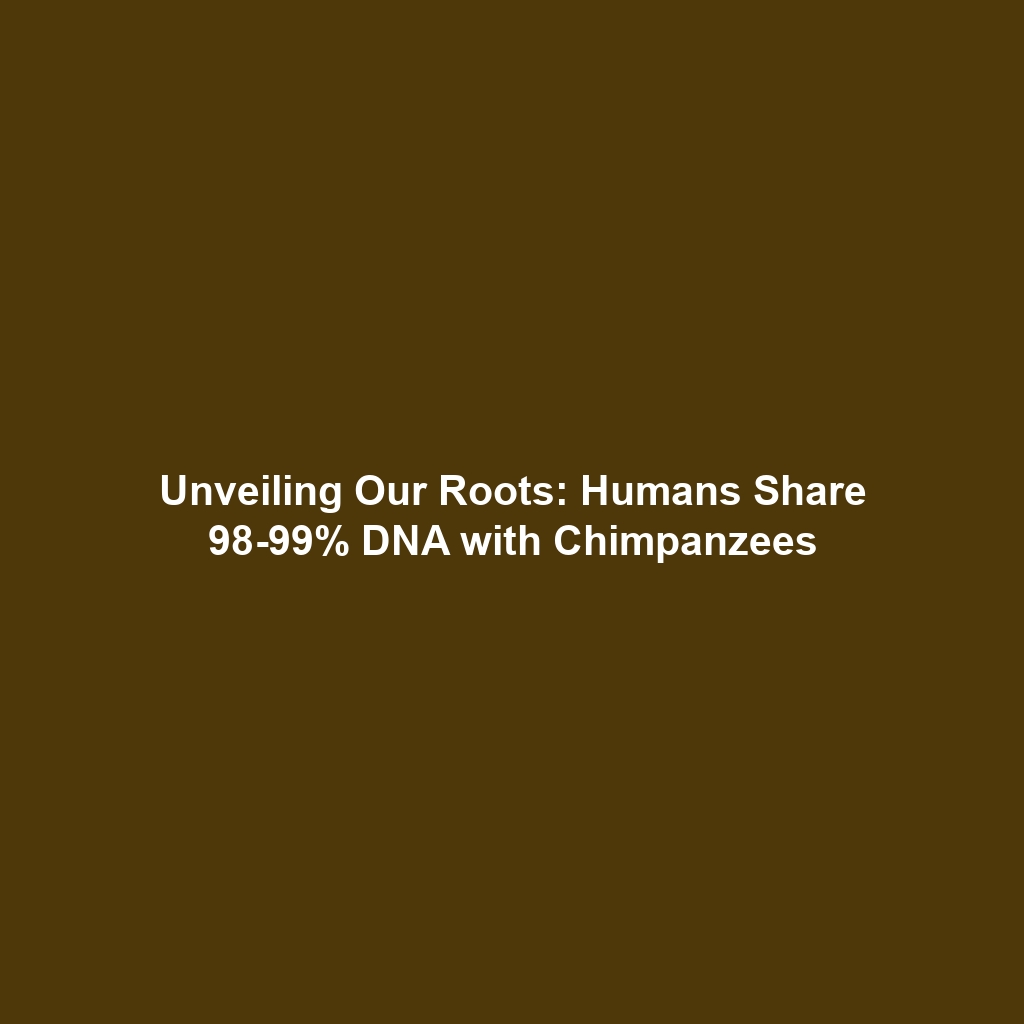Genetic Similarities: Humans and Chimpanzees Share Approximately 98–99% of Their DNA
Introduction
Understanding the genetic similarities between humans and chimpanzees is crucial for uncovering the intricate web of human evolution. Sharing approximately 98–99% of their DNA highlights the close relationship that both species share, which has significant implications in evolutionary biology, genetics, and anthropology. This remarkable genetic overlap not only demonstrates our evolutionary past but also raises important questions about what it means to be human in the context of this shared ancestry.
Key Concepts
Evolutionary Framework
The genetic resemblance between humans and chimpanzees serves as a cornerstone for understanding human evolution. Both species diverged from a common ancestor roughly six to seven million years ago, leading to the development of unique traits. The shared DNA underlies many physiological and cognitive similarities, as well as behavioral patterns.
Genetic Research
Advancements in genetic research have allowed scientists to explore specific genes that contribute to traits in both humans and chimpanzees. For instance, studies have shown that some genes associated with brain development and function are highly conserved between the two species. This provides insight into the evolutionary pressures that shaped human cognition and social behavior.
Applications and Real-World Uses
The significance of genetic similarities between humans and chimpanzees extends into various applications, particularly in the field of medicine and disease research. Here are some examples:
- Biomedical Research: The similarities enable researchers to use chimpanzee models to study human diseases, leading to better understanding and treatments.
- Conservation Biology: Insights from genetic studies assist in conservation efforts for chimpanzees and their habitats.
- Comparative Genomics: Studying the genetic differences helps pinpoint what makes humans unique, leading to advancements in evolutionary biology.
Current Challenges
Despite the importance of studying genetic similarities, several challenges remain:
- Ethical Considerations: The use of chimpanzees in research raises ethical questions regarding their welfare and rights.
- Limitations in Genetic Analysis: Techniques for sequencing genetic material can vary in accuracy, leading to potential misinterpretations of data.
- Funding and Resources: Research in this area often requires significant resources, which may not always be available.
Future Research and Innovations
Looking forward, innovative research methods are being developed that could further illuminate the genetic ties between species. The application of next-gen sequencing technologies promises to provide deeper insights into evolutionary pathways and genetic functions. Moreover, advancements in CRISPR and gene-editing technologies may enable researchers to experiment with genetic variations that distinguish humans from chimpanzees, potentially reshaping our understanding of human evolution.
Conclusion
In summary, the genetic similarities between humans and chimpanzees underscore a shared evolutionary narrative that poses intriguing questions about our species. Understanding this relationship not only enhances our knowledge of human evolution but also informs various scientific fields. As research continues to evolve, it becomes increasingly important to consider both the ethical implications and the potential breakthroughs that may reshape our comprehension of genetics. For more information on human evolution and genetic studies, explore our related articles on evolutionary biology and genetic research.
